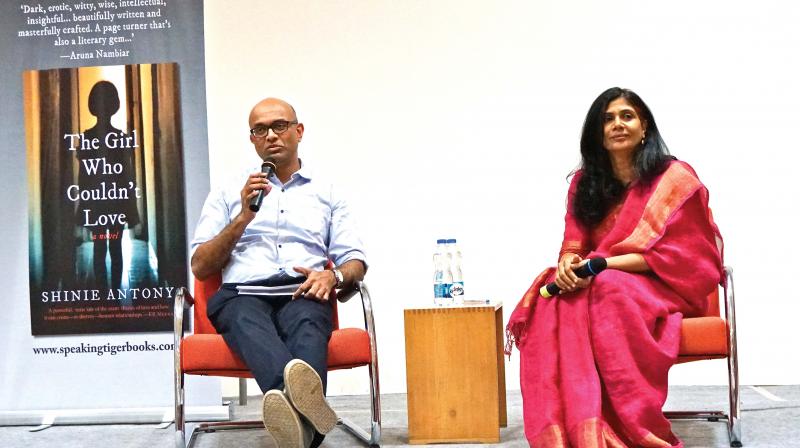Ties with parents decide how we relate to world: Author Shinie Antony
Shinie Antony shares her delight with Deccan Chronicle on how the story unfolded.

Bengaluru: As her novel The Girl Who Couldn’t Love is a topic of discussion in the literary world, author Shinie Antony shares her delight with Deccan Chronicle on how the story unfolded.
Some readers and reviewers have expressed their thoughts on how this novel draws parallels to Nicci French’s works. Have their works inspired you in any way or is it just a coincidence?
I have never read Nicci French, as also any noir literature. It is only when some readers tell me how I have detoured from the genre that I think of it that way. This is the story of this particular family, the Sens, who got a little dysfunctional along the way.
Problems within a family during one’s formative years have a long-lasting impact. As this novel takes that route, what is your view?
Our relationship with dads and moms form the basis of how we relate to the world at large, to a stranger, to anyone anywhere. I wouldn’t really call them ‘problems’ in the context of my book, but just situations and happenings. What we go through are what we are made of.
The protagonist is seen to have a bond with literature across relationships. How significant a role does this play in her life and in similar real-life situations for individuals?
Loners tend to live inside their heads more than others. Roo, or Rudrakshi, reads a lot, and books and the characters in them are her family and friends. This allows her to at one level be smarter than the rest, but at another level can leave her a little delusional.
The major events in the Roo's life are seen to be unfolding within the premises of a school. Was there any particular intention towards such a backdrop?
The protagonist, the only daughter of a professor of English literature, loves books and lives to read. She teaches English in a school as a natural progression of that.
High praise for ‘The Girl Who Couldn’t Love’
According to Australian author and academic Philip McLaren, the novel is an emotional and elaborate sensual rollercoaster, with story-specific brutality. “It's seductive, expressed with flair and style. I love the streamed narration flowing in a kind of candid impetuosity. Shinie Antony is a gifted writer,” he tweeted. At the same time, for poet and translator Mani Rao, it was shocking to realise that she completed reading the 168-paged novel in one stretch. “The greater shock was that the narrative seems like automatic writing, driven by or as-if possessed by the protagonist… If up until here was Ravel’s bolero, the dark, final movement becomes the second half of the book, and you are unable to leave the room.”

